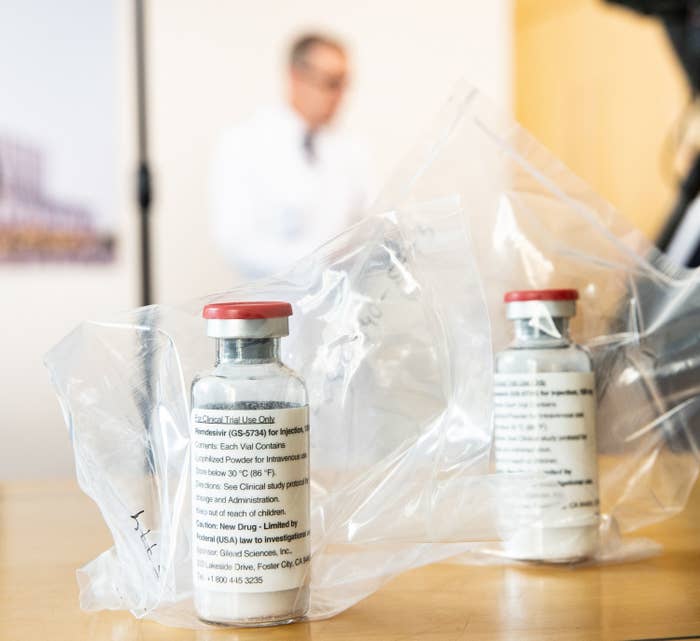
BuzzFeed News has reporters across five continents bringing you trustworthy stories about the impact of the coronavirus. To help keep this news free, become a member and sign up for our newsletter, Outbreak Today.
The FDA approved the experimental drug remdesivir for emergency use to treat COVID-19 on Friday, just days after a preliminary study reported it shortened hospital stays for COVID-19 patients.
In an emergency use authorization statement, the FDA's chief scientist, Denise Hinton, concluded, "It is reasonable to believe that the known and potential benefits of [remdesivir] outweigh the known and potential risks of the drug for the treatment of patients hospitalized with severe COVID-19."
The drug's authorization came just two days after the report of a National Institutes of Health–sponsored test. In an experiment on 1,063 patients, the study found that while the drug did not statistically reduce mortality in COVID-19 patients, it did lead to a median hospital stay of 11 days rather than 15 for patients who received a placebo.
News of the approval came from President Donald Trump in an Oval Office announcement on Friday with the CEO of Gilead Sciences, the drug's maker. Remdesivir is an antiviral drug that interferes with the reproduction of viruses in cells, originally intended to treat the MERS and SARS coronaviruses.
"I think this really illustrates what can happen in such a short time," said Deborah Birx of the White House coronavirus task force.
A separate, smaller trial of remdesivir in 237 patients published in the Lancet on Wednesday found no clinical benefits to treating COVID-19 patients with the drug; its use was halted because the drug caused a higher percentage of side effects. However, the study did show similar signs of shortening hospital stays, although not to a statistically significant extent. Both studies started in February.
"It is not just because of the reduction in time to hospital discharge that this is a big deal," Peter Jüni, a University of Toronto professor and the editor-in-chief of the journal Trials, told BuzzFeed News. "It is a big deal because it shows there's a way with drugs to influence the course of the disease." Jüni suggested that larger clinical trials will show when during an infection patients will benefit the most from infusion with the drug.
Possible side effects of remdesivir include nausea, low blood pressure, and an increase in liver enzymes associated with inflammation or damage to the organ, according to the FDA.
The emergency use approval for remdesivir is the second one issued for a drug to treat COVID-19, the first coming in March for hydroxychloroquine phosphate and chloroquine sulfate. The FDA issued a warning a month later against widespread use of the drugs after more than a dozen patients died in a small clinical trial in Brazil.
